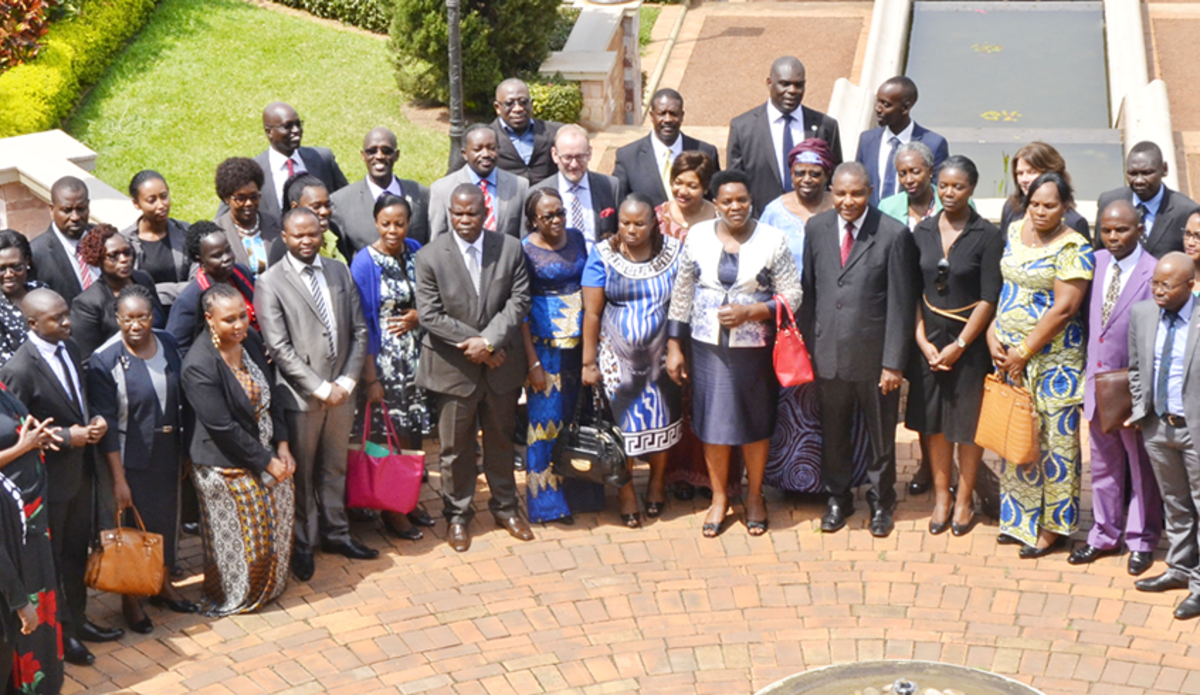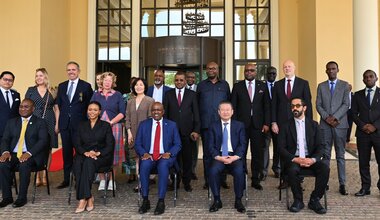Experts from the African Great Lakes region meet in Entebbe to fight impunity in gender based violence
Entebbe, 9 July 2016 – The Government of Uganda, with support from the Office of the United Nations Special Envoy for the Great Lakes region and the African Union (AU), hosted on 7-9 July 2016 a symposium on access to justice and the fight against impunity for Sexual and Gender-Based Violence (SGBV) in the Great Lakes region. The three-day symposium brought together experts from the member states of the International Conference on the Great Lakes Region (ICGLR), as well as representatives from the UN, the AU, and other partners.
The delegates analyzed several points, including the situation of victims of such violence and the justice mechanisms available to them; the legal, institutional, administrative, and financial frameworks in place to support victims; the legal cases which negatively or positively impact the rights of victims; and the challenges and best practices in the fight against impunity.
The event was organized by the Regional Training Facility on Sexual and Gender-Based Violence. Established in 2014, this entity aims to be a center of excellence for addressing SGBV in the Great Lakes Region. The results of the Symposium will help the Regional Training Facility develop tools and best practices that will guide the member states in the eradication of SGBV and the fight against impunity for these crimes.
In a message delivered on his behalf, the United Nations Special Envoy for the Great Lakes, Said Djinnit, pointed out that the fight against sexual and gender based violence is paramount to the establishment of peace and security in the region. He noted that “Winning this battle can make a significant contribution to ensuring that all girls and boys, and all women and men, are able to live free from sexual violence in their homes and communities.”
Special Envoy Djinnit called on organizations and governments, as well as men and women, to support initiatives that can prevent sexual violence from happening in the first place, and to support action that will ensure victims have access to justice, and individuals who have committed such crimes are held accountable.
 UN
UN




